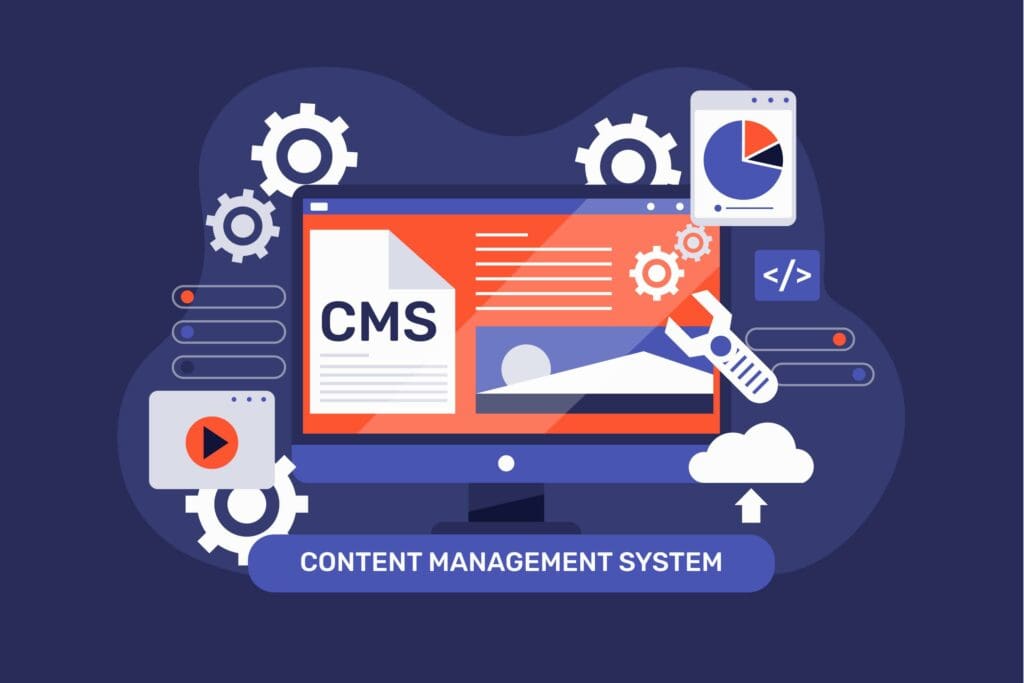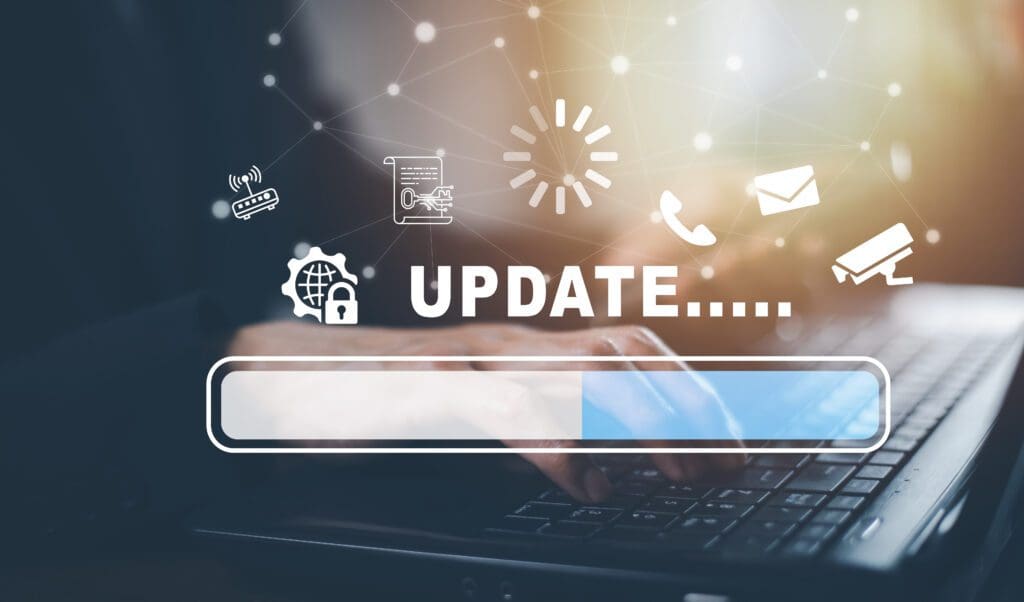On website robustness and accessibility in general
In the dynamic and ever-evolving landscape of the internet, having a strong online presence is crucial for businesses, bloggers, and individuals alike. Your website serves as the digital storefront of your brand, making it imperative to ensure that it not only looks good but also functions seamlessly. In this extended blog post, we will delve into the significance of having a robust WordPress website and website robustness, with a particular emphasis on accessibility, and explore the various elements that contribute to its strength.
What is website robustness?
A robust website is reliable, secure, scalable, and capable of delivering a consistent and positive user experience. In the context of a website, robustness refers to its ability to withstand challenges, maintain functionality under varying conditions, and recover gracefully from potential issues.
User experience matters
Website robustness directly impacts the user experience. A robust WordPress website ensures that visitors encounter minimal downtime, fast loading times, and consistent performance across different devices and browsers. By prioritizing a seamless and reliable user experience, you not only retain visitors but also enhance the overall perception of your brand or content.
Search engine optimization (SEO) advantage
A robust website is more likely to adhere to SEO best practices, contributing to higher search engine rankings. Search engines favor websites that load quickly, have clean code, and provide a positive user experience. With a robust WordPress website, you can implement SEO strategies effectively, ensuring that your content is not only high-quality but also accessible to search engine crawlers.
Security as a pillar
Security is a cornerstone of website robustness. A robust WordPress website is fortified against potential threats by employing measures such as regular security updates, strong authentication protocols, and the use of reputable security plugins. By prioritizing security, you not only protect your website from potential breaches but also safeguard sensitive user information, building trust with your audience.
Scalability and flexibility
A robust WordPress website is designed to grow with your needs. It can handle increased traffic, accommodate additional features, and adapt to the evolving demands of your business or content strategy. This scalability ensures that your website remains effective and relevant in the long run, saving you from the need to undergo frequent redesigns or migrations.
Mobile responsiveness
Robustness extends to ensuring that your website functions seamlessly on various devices. A robust WordPress website is inherently mobile-responsive, guaranteeing a consistent and enjoyable user experience regardless of the device being used. This not only caters to a diverse audience but also aligns with the mobile-first approach that is increasingly important in today's digital landscape.
Content management made easy
The robustness of a robust WordPress website also extends to its content management capabilities. The platform's user-friendly interface allows for efficient content creation, editing, and updating. This ease of content management ensures that your website remains dynamic and can adapt to changing trends and user preferences without compromising its robustness.
Community support, regular updates, and accessibility
The robustness of a WordPress website is further solidified by the active community that surrounds the platform. Regular updates, bug fixes, and new features contribute to the ongoing improvement of the WordPress ecosystem. Additionally, focusing on accessibility is paramount for a truly robust website.
The Web Content Accessibility Guidelines (WCAG) play a crucial role in ensuring that your website is accessible to all users, including those with disabilities. By adhering to WCAG standards, you enhance the inclusivity of your website, providing a positive experience for individuals with diverse abilities. Consideration of accessibility features such as alternative text for images, keyboard navigation, and proper heading structures is integral to building a robust WordPress website that caters to a broad audience.

Choosing WordPress for website robustness: a smart decision
When it comes to building a robust website, selecting the right content management system (CMS) is a crucial decision. Among the myriad of options available, WordPress stands out as an excellent choice for those seeking a solid foundation for their online presence. Here are several compelling reasons why WordPress is a particularly good choice when the goal is to have a robust website:
User-friendly interface
Ease of use: WordPress is renowned for its user-friendly interface, making it accessible to individuals with varying levels of technical expertise. The intuitive dashboard and straightforward content management system empower users to navigate and manage their websites efficiently.
Extensive plugin ecosystem
Versatility and customization: WordPress boasts a vast ecosystem of plugins, offering solutions for a wide range of functionalities. Whether it's enhancing security, optimizing performance, or implementing SEO strategies, the extensive plugin repository allows users to tailor their websites to specific needs without extensive coding.
Robust community support
Continuous improvement: The open-source nature of WordPress has fostered a robust community of developers, designers, and users. This community actively contributes to the improvement of the platform through regular updates, bug fixes, and the creation of new themes and plugins. The wealth of resources and forums ensures that users can find assistance and solutions to challenges they may encounter.
Security measures
Community-driven security: With its popularity, WordPress has become a target for cyber threats. However, the community's proactive approach to security is reflected in frequent updates, security patches, and the availability of reliable security plugins. By following best practices and staying vigilant, users can fortify their WordPress websites against potential vulnerabilities.
SEO-friendly structure
Optimized for search engines: WordPress is inherently structured in a way that aligns with search engine optimization (SEO) best practices. Features like clean permalink structures, customizable meta tags, and the ability to create SEO-friendly content contribute to better search engine rankings, enhancing the visibility of your website.
Scalability and flexibility
Accommodating growth: WordPress is designed to scale with the growth of your website. Whether you're running a personal blog or managing a large e-commerce site, WordPress provides the flexibility to expand your site's functionality seamlessly. The availability of themes and plugins makes it easy to adapt your website to evolving requirements.
Mobile responsiveness
Adaptable across devices: As we have mentioned earlier, a robust website should be accessible across various devices, and WordPress excels in this aspect. With due caution, it is possible to choose a good template. You can also choose a WordPress-based platform that doesn't use the original WordPress template system but generates completely custom, optimised code, such as the CREA SPACE Platform.
Content management efficiency
Intuitive content editing: WordPress originated as a blogging platform, and its content management capabilities remain a highlight. The platform allows users to easily create, edit, and organize content. The simplicity of the interface ensures that even those without advanced technical skills can manage their website content effectively.
In conclusion, the choice of a CMS plays a pivotal role in determining website robustness. WordPress, with its user-friendly interface, extensive plugin ecosystem, community support, SEO-friendly structure, scalability, security measures, mobile responsiveness, and efficient content management capabilities, emerges as a compelling option for those aiming to build a website that is not only visually appealing but also resilient and adaptable to the demands of the digital landscape.

Navigating the challenges: solutions for building a secure & robust WordPress website
Building a robust website involves addressing various challenges to ensure its stability, security, and optimal performance. Here are some common problems encountered in creating a robust website, along with solutions to mitigate these issues:
Slow page loading times
- Problem: Slow-loading pages can lead to a poor user experience and negatively impact search engine rankings, hence the possibility of having a robust WordPress website.
- Solution: Optimize images, enable browser caching, and utilize a content delivery network (CDN) to distribute content globally. Additionally, consider minifying CSS and JavaScript files to reduce their size. Alternatively, subscribe to a managed WordPress platform that is perfectly optimized for fast page load times.
Security vulnerabilities
- Problem: Websites are susceptible to hacking, data breaches, and other security threats.
- Solution: Regularly update the WordPress core, themes, and plugins. Employ strong password policies, implement a firewall, and use security plugins. Conduct security audits and consider a web application firewall (WAF) to protect against common attacks, or perhaps the best solution is to subscribe to a managed WordPress platform that ensures security.
Lack of mobile responsiveness
- Problem: With the increasing use of mobile devices, a website that is not mobile-friendly can alienate a significant portion of its audience.
- Solution: Design a responsive website that adapts to various screen sizes. Test the site on different devices to ensure a consistent, user-friendly experience and, of course, a robust WordPress website. Of course, there is also the possibility to turn to a managed WordPress platform that excels at providing responsiveness.
Inadequate backup and recovery mechanisms
- Problem: Data loss due to accidental deletions, server failures, or other unforeseen events can be catastrophic.
- Solution: Regularly back up website data and ensure that backups are stored in a secure offsite location. Use reliable backup plugins and test the restoration process to verify its effectiveness. A well-managed WordPress platform comes with these solutions.
Poorly-structured content
- Problem: Content that is disorganized or lacks proper structure can confuse visitors and hinder SEO. A robust WordPress website doesn't like these features!
- Solution: Employ clear navigation menus, use consistent heading structures, and create a logical content hierarchy. Utilize categories and tags effectively to enhance content organization.
Compatibility issues with browsers and devices
- Problem: Websites may display differently or encounter functionality issues across various browsers and devices.
- Solution: Regularly test the website on different browsers and devices to identify and address compatibility issues. Utilize tools like BrowserStack to simulate diverse environments.
Unoptimized images
- Problem: Large, unoptimized images can significantly slow down page loading times.
- Solution: Compress images without compromising quality using tools like TinyPNG or ImageOptim. Specify image dimensions in HTML to prevent layout shifts during loading and enhance website robustness.
Failure to implement Content Delivery Networks (CDNs)
- Problem: Without a CDN, website performance may suffer, particularly for users in geographically distant locations.
- Solution: Integrate a CDN to distribute website content across multiple servers globally. This reduces latency and improves loading times for users around the world.
Ignorance of Web Content Accessibility Guidelines (WCAG)
- Problem: Inaccessible websites may exclude users with disabilities, violating principles of inclusivity. This clashes with the idea of a robust WordPress website.
- Solution: Familiarize yourself with WCAG guidelines and ensure your website adheres to accessibility standards. Use tools like WAVE or the Axe Accessibility Checker to identify and fix accessibility issues. Optionally, subscribe to a managed WordPress platform that gives attention to WCAG.
Lack of regular updates
- Problem: Neglecting to update WordPress core, themes, and plugins can leave the website vulnerable to security threats.
- Solution: Implement a regular update schedule, ensuring that all components of the website are up-to-date. Regularly check for and install available updates to maintain a secure environment.

By addressing these common problems and implementing the suggested solutions, you can contribute to the development of a robust WordPress website that not only performs well but also provides a secure and positive experience for its users.
Conclusion
In conclusion, a robust WordPress website goes beyond aesthetics and basic functionality. It embodies resilience, security, scalability, and adaptability. By understanding and prioritizing the notion of website robustness, with a special focus on accessibility through WCAG standards, you not only ensure a positive user experience but also fortify your digital presence against potential challenges. Whether you're a business owner, blogger, or individual, investing in the robustness of your WordPress website is an investment in the long-term success and sustainability of your online endeavors.
